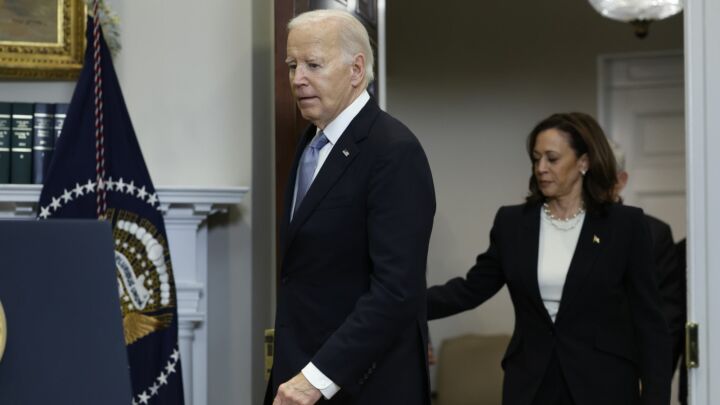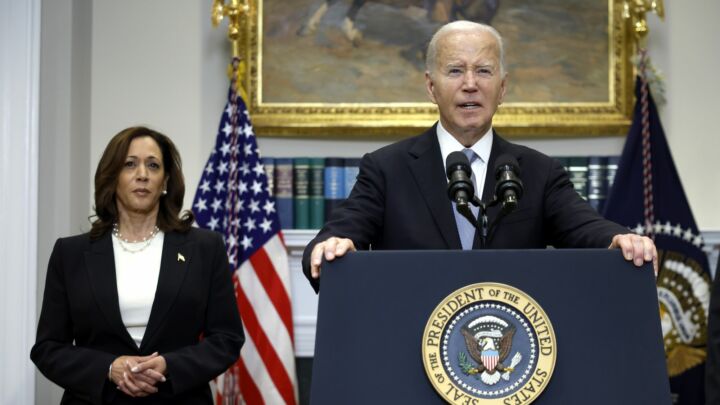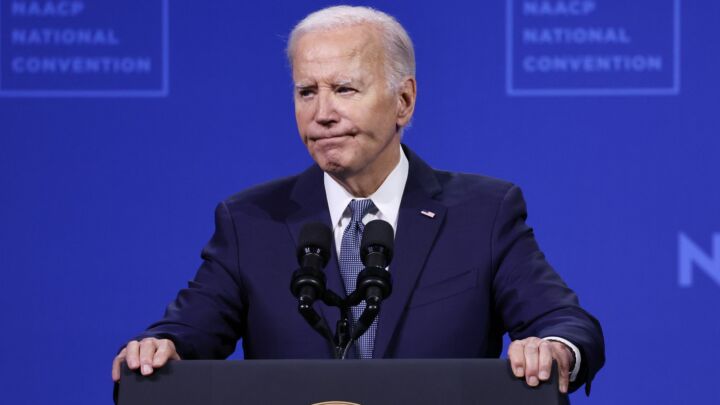After Cass, let’s kick trans ideology out of the classroom
Schools have been pushing these unscientific, dangerous ideas on kids for far too long.

Want to read spiked ad-free? Become a spiked supporter.
Remember Murray Allan? Back in 2019, the then 17-year-old Scot got into trouble at school for saying ‘there are only two genders’. In a later conversation that Allan recorded, his teacher told him that he should keep his ‘opinion to [his] own house’, because ‘saying there’s no such thing other than male or female is not inclusive’. Allan was suspended for two weeks, a punishment which was extended by a further fortnight after the video of his conversation with the teacher went viral. He was then told not to return to school after the holidays, severely disrupting his education and delaying his plans for university.
Or what about the 13-year-old girl from East Sussex who, just last year, got into trouble for questioning whether someone could identify as the opposite sex? In a recorded conversation, her clearly angry teacher told her it was ‘despicable’ to say there are only two genders: ‘There are lots of genders. There is transgender, there is agender – people that don’t believe they have a gender at all.’ The teacher even threatened to report the girl to senior members of staff.
In her review of England’s gender-identity services for children, published last week, Dr Hilary Cass makes clear that ‘polarisation and stifling of debate do nothing to help the young people caught in the middle of a stormy social discourse’. Yet stifling debate is exactly what too many teachers have been doing for far too long. They have been punishing children for stating biological facts and abusing their position as teachers to promote a contested ideology.
Worse still, activist teachers have encouraged vulnerable children to question their gender identity. It was partly official concern over the growing number of teenage girls wanting to change gender that prompted the NHS to commission the Cass Review in the first place. The review itself considers various explanations for this increase, including: social-media trends, peer-group pressure, homophobic bullying, the prevalence of pornography and the failure to diagnose and respond adequately to autism and other mental-health problems. But it is surely schools that have played a major role here. Far more than any other institution, schools have legitimised and promoted harmful and scientifically inaccurate ideas about sex and gender to a captive audience of young pupils.
The extent to which schools have pushed children down the transgender path cannot be overstated. Remember when Brighton and Hove Council wrote to the parents of four-year-olds asking them to get their child to ‘choose’ whether they were male or female on school application forms? Or when infants discovered the classmate they believed to be a girl was actually a boy – and their teachers had kept this a secret? Remember when secondary-school girls as young as 11 were offered advice via a school newsletter on how to bind their breasts? Or the children taught using a diagram of a ‘gender unicorn’, showing sliding scales of male, female and other identities, alongside spectrums of ‘gender expression’ and ‘sex assigned at birth’?
The government has tried to roll back gender ideologues’ influence in schools. Hence, it finally published draft guidance to schools on how to deal with ‘gender questioning’ pupils at the end of last year. But its impact has so far been negligible. Tens of thousands of children have already experienced this indoctrination, while many more continue to be subject to it today. There is plenty of evidence to suggest that some teachers are still going far beyond helping children struggling with their gender identity. They are actually encouraging children to question their gender identity in the first place.
The promotion of gender ideology is primarily taking place through sex-and-relationships classes. It seems that some schools are still teaching children that ‘for some people their gender identity does not correspond with their biological sex’. Plenty of others are still using resources like this video from sex-education providers AMAZE. Designed for young children, it features cartoon characters and includes ‘definitions for gender expression, gender roles, sex and how it differs from gender identity, cisgender, transgender and genderfluid’. This short, lively film ‘emphasises that it’s okay to express your gender however you choose, and that everyone deserves respect and support’.
Many schools are continuing to use a ‘gender toolkit’, introduced by Brighton and Hove Council in 2021, that many lawyers now believe to be in breach of equality and human-rights legislation. This toolkit advises teachers to ‘respect’ a child’s request to change their name and pronoun as a ‘pivotal’ part of supporting their identity. And it enables other gender changes, such as switching uniform and using toilets and changing rooms meant for the opposite sex. In other words, schools using this toolkit are allowing children to ‘socially transition’ – despite the Cass Review making it clear that doing so is invariably a first step towards medical interventions. Hundreds of schools are still allowing children to change gender in this way without informing their parents.
The Cass Review, like the government’s recent guidance to schools, is a step in the right direction when it comes to protecting children. But we must not forget the terrible influence activists in the education sector have been able to wield – and continue to wield. Until we get trans ideology out of the classroom for good, the number of gender-confused kids will continue to grow. So long as teachers punish pupils for saying gender is binary, ride roughshod over the wishes of parents and search for loopholes in safeguarding laws, no child is safe.
Joanna Williams is a spiked columnist and author of How Woke Won. She is a visiting fellow at MCC Budapest.
Picture by: Getty.
To enquire about republishing spiked’s content, a right to reply or to request a correction, please contact the managing editor, Viv Regan.









Comments
Want to join the conversation?
Only spiked supporters and patrons, who donate regularly to us, can comment on our articles.